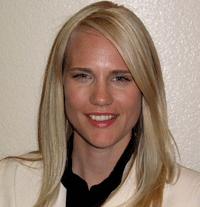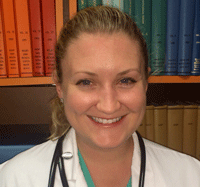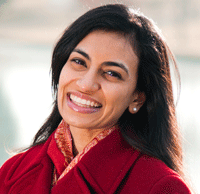What I Know Now That I Wish I Knew Then
From the EMRA Medical Student Council
Introduction
This time of year brings feelings of change to every medical student at every level. Most MSIs are getting ready for a much-deserved break, but wondering how anyone could possibly survive another year of fundamentals and “basic” sciences. MSIIs have all but forgotten those days as they trudge through UWorld hoping everyone else is getting a 51% in immunology. MSIIIs are gearing up to finally spend some time in the ED (at least the ones reading this article are), but the pressures of VSAS, SLOEs, Step II, ERAS, and their COM deans are starting to get a little heavy. And finally, MSIVs are pumped for residency, but are trying to remember the last time they actually saw a patient and did a real H&P, or if they can actually answer a question that doesn't have five choices below it. They're starting to panic because they just saw the first episode of Scrubs on late night cable and they realized that they can't hide behind the short coat anymore because they're about to be”¦a doctor.
Whatever your stage in the game, remember that those who have gone before you and survived are great resources on how to jump through all the hoops of medical school with success. The EMRA Medical Student Council (MSC) has put a primary focus on mentorship, and that includes student-to-student advice. And while every EM applicant's experience will be different, being as prepared as possible for the ups and downs of fourth year and the interview trail can save you a little time, hassle, money, and most importantly, stress. With that in mind, our panel of MSIV Council members presents what we wish someone had told us at this time a year ago. The next issue of EM Resident will feature more advice from the MSC, more focused on the interview process, and will serve as a primer for that stressful time. Stay tuned for more in June.
Crystal Irwin-Singh
Touro University Nevada
MSC Osteopathic Coordinator
Matched: University of Southern California, Los Angeles, CA
EM away rotations are an essential step of not only assuring that EM is the correct specialty choice for you, but are also a decisive part of the residency application. Program directors put a great deal of weight in a student's performance on EM rotations. When deciding who to interview, program directors have rated the SLOE as the number one deciding factor, while EM rotation grades were second.1 This information leaves many students pondering how they can perform well on their EM rotations. Luckily, there's an abundance of online and printed articles that focus on this topic, and you should become familiar with these resources.
In addition, keep in mind that this will most likely be a completely different experience than what you have encountered thus far in medical school. A third-year student typically function as a recorder, gathering information from patients and presenting to their residents and attendings. On an away rotation you will be expected to take the next step. Students should not only be able to perform a concise and accurate history and physical but also present a complete differential, including life-threatening and emergent conditions, as well as the most likely diagnosis. Students will also be expected to articulate what they would like to order and why for both therapeutic and diagnostic purposes. A fourth-year medical student is still an early learner but should be familiar with common complaints in emergency medicine and how to elicit “red flag” symptoms and physical exam findings from their patients. One excellent resource for this type of information is the EM Basic Podcast by Steve Carroll, DO.
Remember that the interview process has a dual purpose. Not only do you need to present yourself well, but you also need to gather essential information about a program that will be used later for ranking. Without this mindset, the abundance of information that will be presented to you during residency season can quickly become confusing and overwhelming. In order to better process this information it is helpful to have some concrete goals in mind. Deciding what particular qualities you are looking for in a residency program early on can be helpful.
Also, consider shadowing at every possible opportunity. The best way to get to know a program is to spend some time in the emergency department. Here you can learn about the patient population, ED flow, interactions between faculty and residents, and how bedside teaching occurs. You will gain great insight into a program by spending a couple of hours in their ED.
Do not be afraid to contact a program that you are seriously interested in after receiving a rejection or a perceived “silent rejection.” I certainly would not recommend this for every program you do not receive an invitation from, but if there is a particular program that you have a strong interest in, I would not hesitate to contact the program director. E-mailing a sincere letter of interest letting them know why you feel that you are a good match for that particular program can certainly not hurt you if you've already been rejected.
Remember that ACGME accreditation standards for EM are very high and therefore all accredited programs consistently provide good training. The nuances of deciding on a residency are not necessarily whether a program is “good or bad,” but rather just finding the right fit. This has to do with some combination of an individual's career goals, gestalt, and geographical preferences. Therefore, the best program for you may not be the best program for someone else. Heed this when taking advice from other applicants, as their goals may not be the same as yours.
Katherine Raczek
Florida International University
MSC Southeast Coordinator
Matched: Texas Tech University
Health Sciences Center, El Paso, TX
I'm coming from a new medical school (third graduating class) in southern Florida where there are no allopathic EM residencies and limited EM advising resources. So I knew I would have to do my own research from the start! This is the main advice I would give to anyone considering emergency medicine — start early, do your research (EM is unique in a few ways...), and stay on top of deadlines!
For away rotations, start looking really early so that when VSAS opens all you have to do is push “send.” By the end of May, I had two away rotations completely squared away while some of my friends had just barely gotten one, and therefore the process was much less stressful for me. I then started researching the programs and their specific requirements early on. You need to be aware that some programs require affiliation agreements, special lab work, and even additional background testing. And not every program is in VSAS!
Try to pick different types of training programs (county vs community, for example) so that you can see what environment fits your learning style better. When interviews come, be prepared to discuss why you rotated there (being clear about a geographical draw is helpful). When you are on away rotation, remember that this is your audition. Come early, stay late, give concise presentations with a thorough but intelligent differential, and never ever say no to procedures! Remember to be nice to everyone — it seems obvious but there will be times when you are exhausted and perhaps someone got under your skin. Remember that in EM many of us get cumulative evaluations at the end so everyone's observations and opinion of you will count! Go to any social event that the residents may invite you to, and definitely all the journal clubs and didactics.
For your application — again, start early! As soon as ERAS opens in July, you should start filling out the simple but important stuff that's basically transcribed from your CV. If you don't have one yet, make one now! Avoid silly typos, errors, and inconsistent dates. Properly cite any abstracts or publications you may have. Be ready to send your application the first day possible, even if you are still waiting on a letter or a score.
When you are on an interview, be sure to know the program and know your own application — anything is fair game! Try to attend the pre-interview social, do not be late to the interview, and again, be friendly to everyone! The interview days can be long and honestly more boring sometimes than stressful, especially towards the end of the season. Just try to be positive and attentive, and you'll stand out above some of the competition. One of my interviewers thanked me for looking so interested during her talk!
Lastly, don't try to be someone you're not. Throughout the whole process — the aways, the ERAS application, and especially the interviews — remember that they are trying to recruit you as much as you're trying to impress them. It really is all about finding the best fit for both the program and the applicant. EM is full of interesting, kind, funny, and compassionate people who are excited to teach you and welcome you into the field. Be enthusiastic, humble, and hard working and you will succeed! Best of luck in all your future endeavors!
Archana Shah
Texas Tech University
MSC West Coordinator
Matched: University of Chicago, Chicago, IL
I started planning for visiting rotations fairly early in the process, around January of my third year. I met with my mentor and he helped me figure out a list of potential places. I applied early on and met with faculty at the SAEM conference in May, which I feel helped me learn about the culture of the programs. Overall, I feel very lucky in the opportunities I received because my rotations were incredible learning opportunities and experiences I treasure tremendously. I built my foundation, made lifelong friends, and established relationships with new mentors. However, there were several things I wish I had understood better.
The process of applying to away rotations is fairly stressful — you often apply as early as February and do not hear about whether you are accepted until May or June. If you are planning to rotate in July, that makes planning for travel and accommodation rushed. I made the mistake of not having a car and not living in the safest neighborhood in a city where public transportation and pedestrian travel were not viable options; although it worked out very well for me in the end, do a thorough job of researching the area before moving there for a month! Also, make sure to check out the medical student clerkship website for the program and its curriculum. I found that those rotations with good and current information on their websites were extremely well organized, and were the places I was given the autonomy to develop both my medical decision making as well as my procedural skills. Go to everything and experience everything — all the didactics, resident conferences, journal clubs, social events, and just explore the city itself! You have invested so much time and so many resources into getting to this place in your career that you should make the most of it.
When it came time to apply to programs in ERAS, I only applied to residency programs in places I could actually see myself living. I have no magic number to suggest, but please be realistic about the competitiveness and desirability of certain geographic regions and adjust your list accordingly. I planned my interviews by geographic region and stayed in each region with friends or family rather than flying back home after every interview. It saved me a lot of money as well as the stress of air travel during the winter months.
My learning curve included the art of packing lightly: you really only need a carry-on with two suits, a couple of shirts, and a few casual outfits for the socials. Not having to check a bag (and wearing nice business casual but comfortable clothes) when traveling reduces the risk of not having an outfit ready when you need it. Get to know the staff, faculty, and residents on interviews (and have a few anecdotes ready to break the ice) but also take the time to meet your fellow applicants ”“ these are people with similar interests and goals, future colleagues, and friends that you can lean on who will help through a fairly busy time and also prepare you for future interviews. You're not going to be eating or sleeping well during interview months so try to be as healthy as possible. Pack workout clothes and exercise when you get a chance, and be safe! Unexpected things are bound to happen so just adjust and have faith that things will work out.






